Exploring Universe and
matter together
Exploring the universe and matter together
We would like to thank the Communities and Partner Projects for the successful collaboration!
We would like to thank the Communities and Partner Projects for the successful collaboration!
Research into the universe and matter brings together around 20,000 scientists from various fields in Germany: Astroparticle physics, elementary particle physics, accelerator physics, research with neutrons, research with synchrotron radiation, research with nuclear probes and ion beams, hadron and nuclear physics as well as the Council of German Observatories.
German ErUM research is thus organized in 8 ErUM committees. These coordinate and represent the interests of the respective research areas. Although ErUM scientists work on different scientific issues, they face similar challenges.
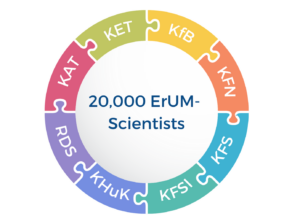
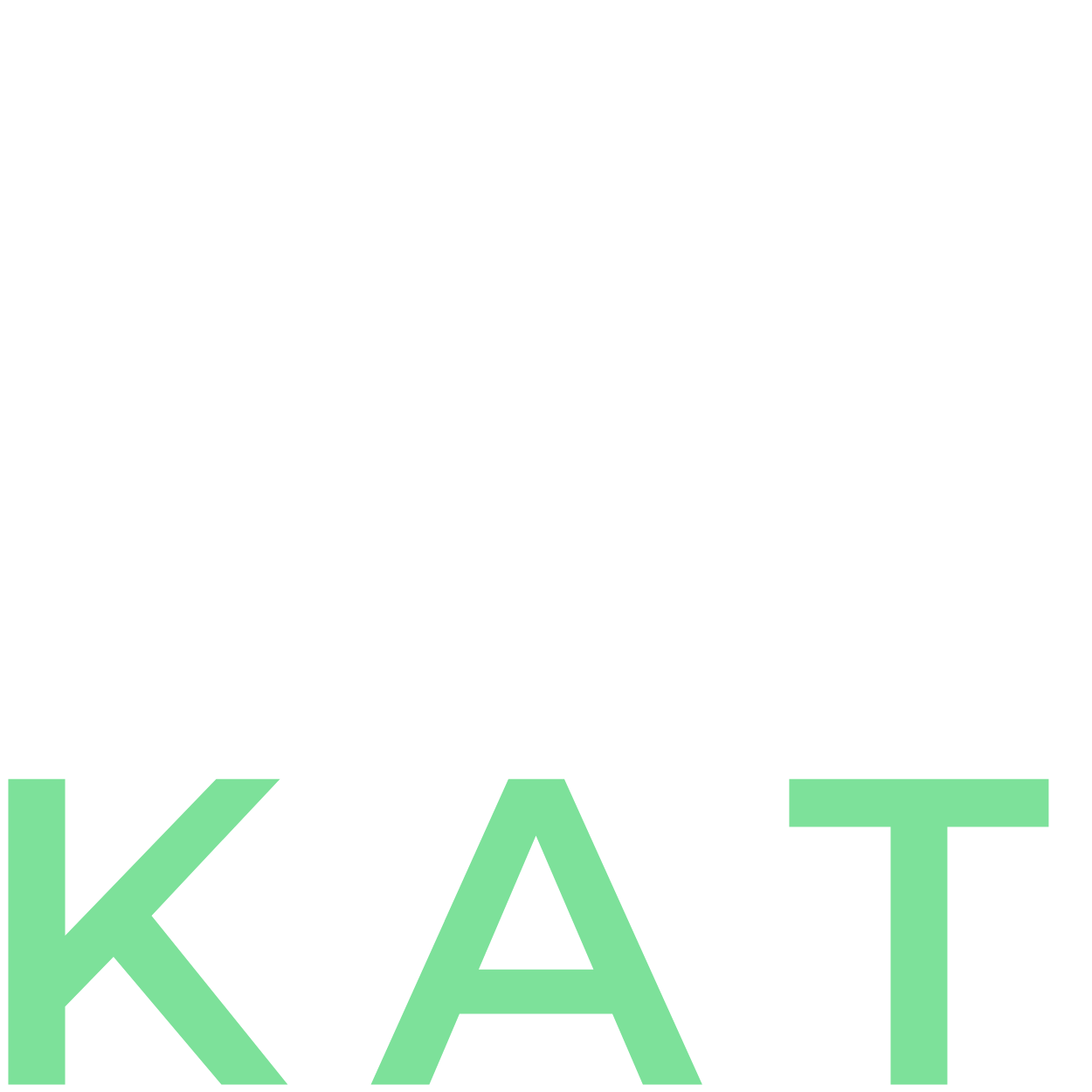
The Committee for Astroparticle Physics represents all German physicists in the field of astroparticle physics.

The Committee for Elementary Particle Physics is the elected representation of the German particle physicists.
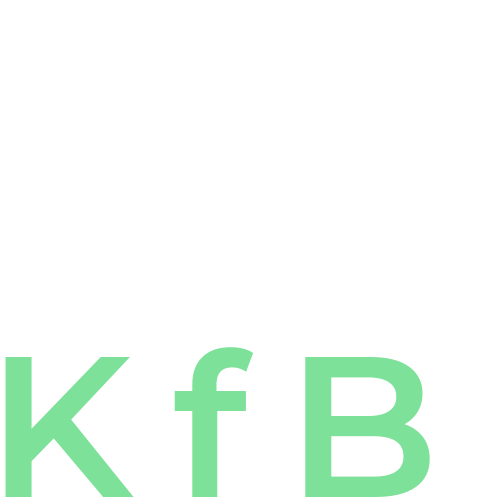
The Accelerator Physics Committee represents the interests of accelerator physics employees and students.
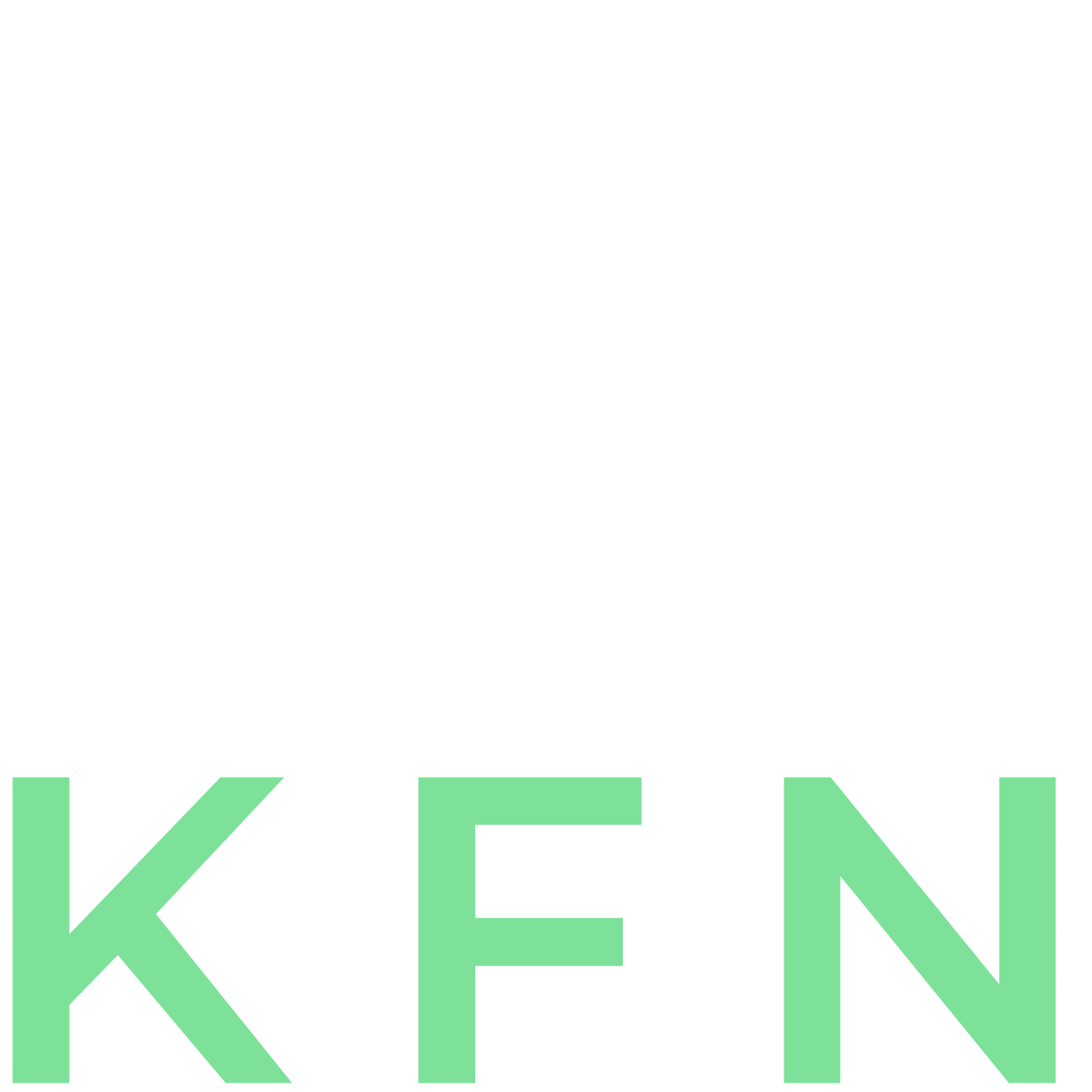
The KFN is an independent interest group with the aim to promote research with neutrons in Germany.
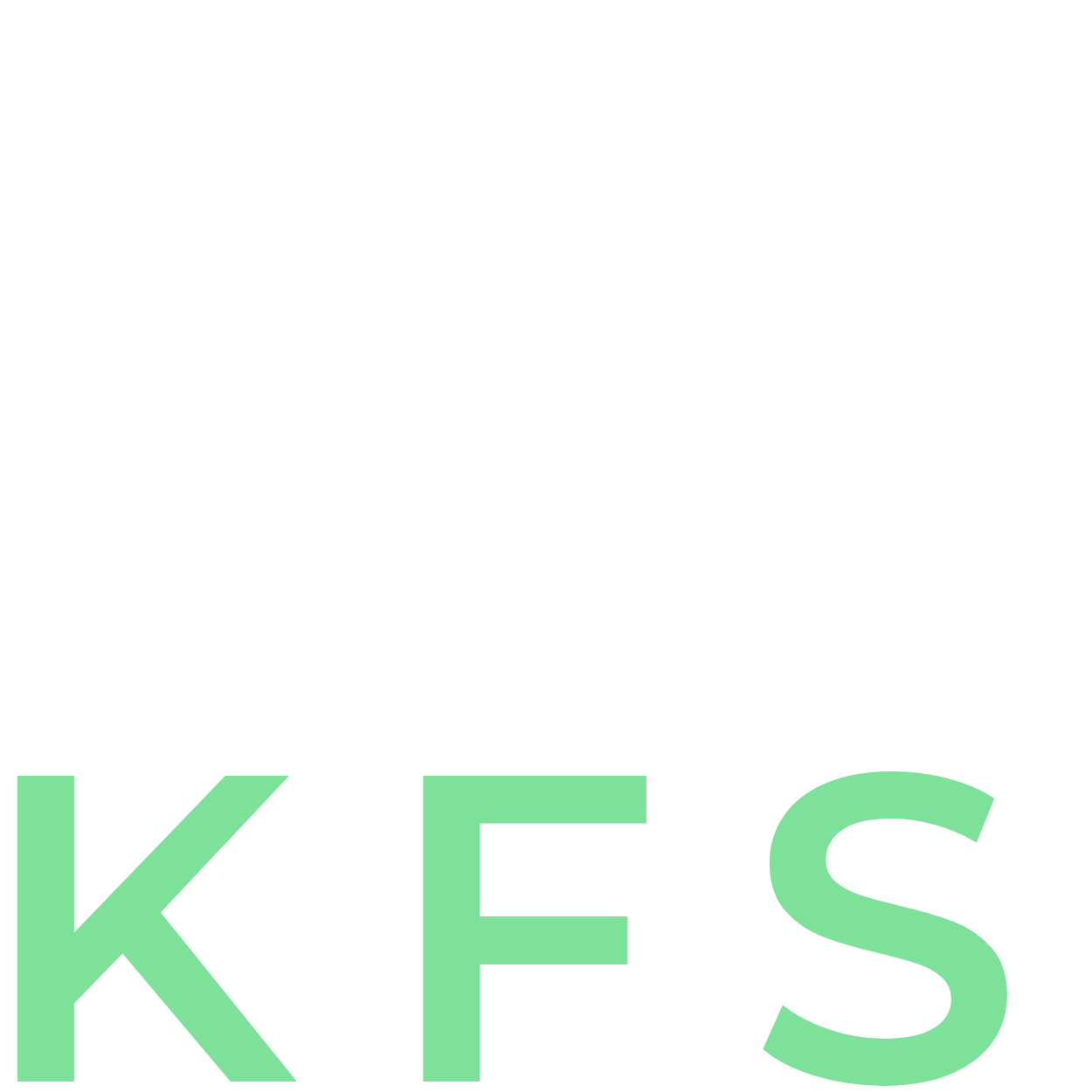
The KFS represents all researchers working with synchrotron radiation in Germany.
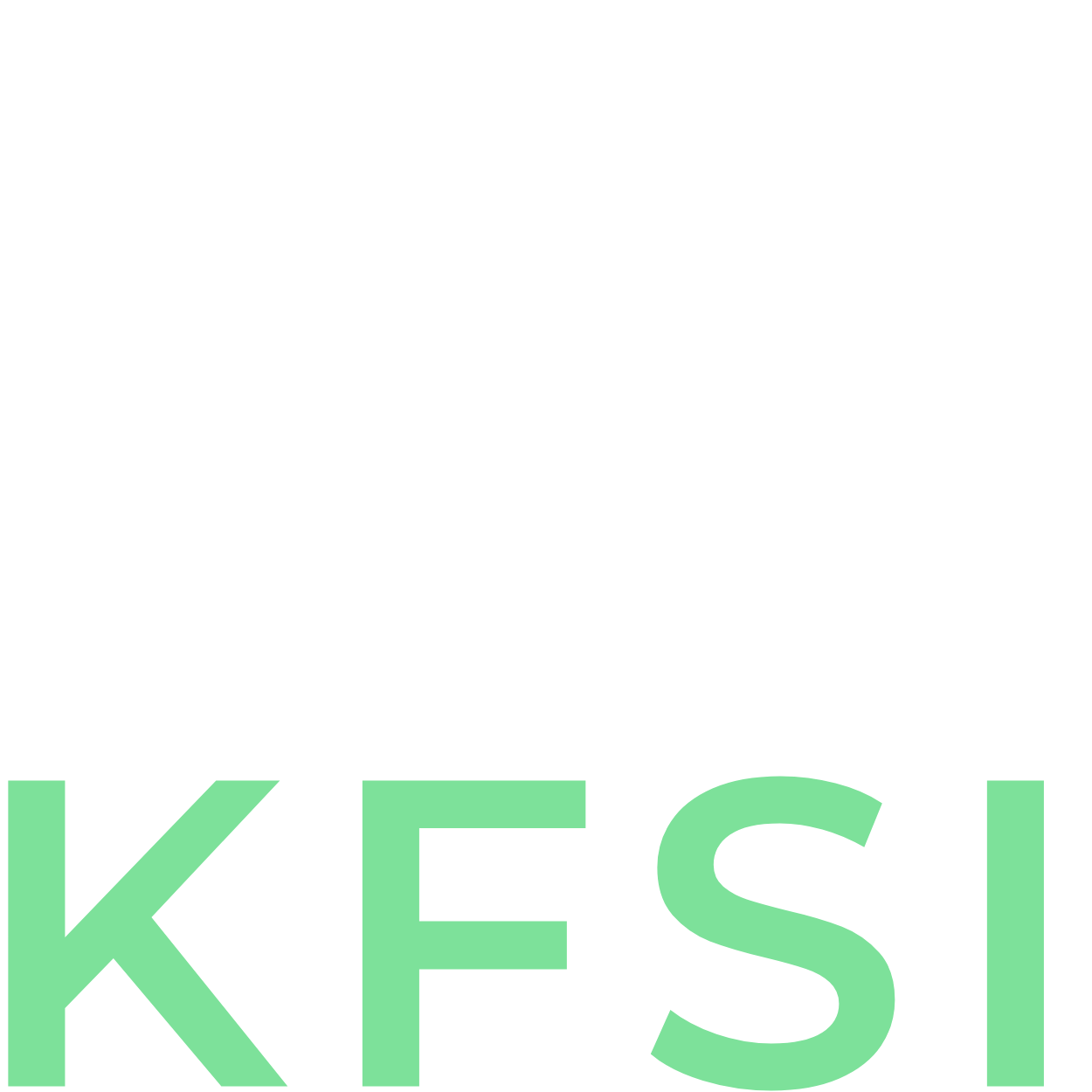
The KFSI represents and promotes research with nuclear probes and ion beams in Germany.

The Hadron and Nuclear Physics Committee coordinates and represents the interests of German hadron and nuclear physicists.

The Council of German Observatories represents the interests of the institutes active in astronomical research in Germany.
Contact us if you are interested in connecting our projects.
Nutzen Sie unsere „People in ErUM-Data Liste“ in unserem Wiki, wenn Sie auf der Suche nach Kooperationen mit verschiedenen Forschungsgruppen und – projekten sind.
Belle II is a particle physics experiment at SuperKEKB, a particle accelerator at the Japanese Research Center for High Energy Physics KEK. Belle II is designed to enable researchers to discover new interactions and new particles.
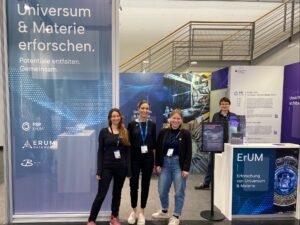
Joint booth with Belle II at the Hannover Messe 2023
DAPHNE stands for DAten aus PHotonen und Neutronen Experimenten. It is a project for a National Research Data Infrastructure (NFDI) funded by the German Research Foundation (DFG). In order to meet the challenges of data and metadata management and high data rates, DAPHNE develops solutions for outstanding scientific experiments together with the user community.

Download joint Poster with DAPHNE4NFDI
FIDIUM steht für „Federated Digital Infrastructures for Research on Universe and Matter“. Die Fortschritte in den Bereichen experimentelle Teilchen-, Astroteilchen-, Hadronen- und Kernphysik produzieren immer größeren Mengen an Forschungsdaten. Die höhere Auflösung moderner Instrumente hat zu riesigen Datensätzen geführt, die die Größenordnung von Millionen von Terabytes und mehr erreichen und nicht nur umfangreiche Rechen- und Speicherressourcen, sondern auch einen benutzerfreundlichen Zugang erfordern. FIDIUM zielt darauf ab, diese Herausforderungen zu lösen, indem mehrere komplexe Infrastrukturen, die eine Reihe von Diensten anbieten, virtuell kombiniert werden.
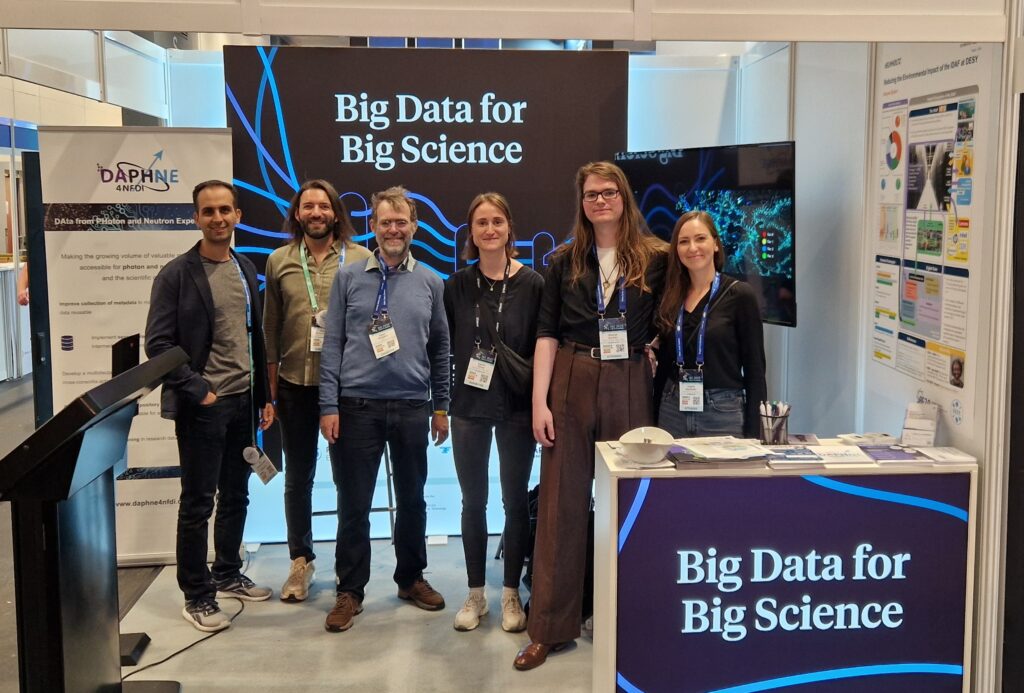
Gemeinschaftsstand auf der ISC in Hamburg 2025
The LHC-ErUM is a joint communication and transfer project of the four ErUM research focuses (ALICE, ATLAS, CMS and LHCb) at the Large Hadron Collider. The office organizes a wide range of measures for the partners involved in the areas of public relations, promotion of young scientists and knowledge and technology transfer.
Netzwerk Teilchenwelt is an association of 30 research institutes in Germany that conduct research into the physics of the smallest particles and allow young people and teachers to participate in current cutting-edge research. The offers in the network make an important contribution to the recruitment of young talents.
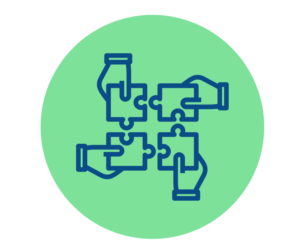


Are there any unanswered questions? Feel free to contact the ErUM Data Hub team in Aachen.
The ErUM-Data-Hub is the central networking and transfer office for the digital transformation in the exploration of universe and matter.
As a Digital Knowledge Agent, the ErUM-Data-Hub performs strategic activities to support the digital transformation in fundamental ErUM-Pro research.
Under the leadership of Univ.-Prof. Dr. Martin Erdmann, the ErUM-Data-Hub team is located at RWTH Aachen University.
The ErUM-Data-Hub is the central networking and transfer office for the digital transformation in the exploration of universe and matter.
As a Digital Knowledge Agent, we offer Digital Transformation in fundamental ErUM Research.